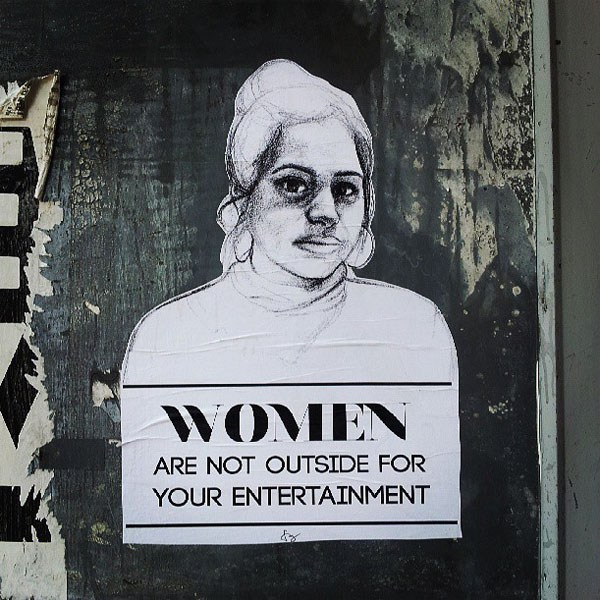The Safe Routes to School National Partnership held a Tweetchat yesterday drawing attention to the role of street harassment as a barrier to walkability -- especially for women.
Cat calls, patronizing enjoinders to "smile," and more aggressive forms of harassment can make walking or biking uncomfortable or threatening.
Katie Matchett, an urban planner who writes about pedestrian issues at Where the Sidewalk Starts, still recalls getting harassed on the streets of San Diego as she was beginning her career 20 years ago. She says it's up to everyone -- men and women -- to combat it:
1. Call it what it is.Even now, street harassment is justified or explained away as harmless banter or "compliments." When we call out harassment for what it is, we give victims the ability to address it appropriately, instead of making them feel like they are the ones doing something wrong.
2. Respond.Street harassment is about power, and figuring out the right response is difficult when you're already in a position of vulnerability. Stop Street Harassment is one great resource for ways to respond effectively, providing info and links from the practical ("Using your voice, facial expressions, and body language together, without mixed signals, show assertiveness and strength.") to the whimsical.
3. Be an ally. Street harassers get away with harassment because their victims can't fight back. But often they're surrounded by people who can fight back, but who choose to remain silent. This needs to change, both on and off the street. Not only should we refuse to tolerate street harassment in the moment, we also need to include more women in conversations about transportation and infrastructure. In the 20 years since that first urban planning job, I've spent a lot of time in meetings where women are sorely underrepresented. We can't build transportation systems that work for everyone until we start hearing from everyone.
More recommended reading today: BikeWalkKC shares the good news -- voters in Kansas City have approved an $800 million bond package that will provide $450 million for complete streets and $150 million for sidewalk construction. Greater Greater Washington remarks on the irony that Trump's budget threatens to delay or kill the long-planned Purple Line light rail project while Trump himself complains that roads take too long to build. And Green Caltrain gives an update about efforts to save the Caltrain electrification project, which is also under threat in Trump's scorched-earth budget.






